Wholesale conversion
Helen Gregory talks with the md who thought the wholesale sector languished in the shadow of the retail multiples, until he was charged with steering Booker into a new era
Booker boss Gerry Johnson used to think wholesale was a "giant secret" that lived in the shadow of the big food retailers. Despite this impression, he joined the company as md five months ago and says his other preconception, that the sector was less sophisticated, was quickly dispelled. "You realise it's an amazing business because of the diversity of customers. You're dealing with a range of people, from someone running a burger bar, to the manager of a chain of shops, and they have very different needs."
Youthful looking, with an almost innocent expression, Johnson is obviously still delighted with his new role, and shows none of the blasé insouciance displayed by some company bosses. He even admits to the company's failings, saying there had been a bit of a vacuum before he joined. "We'd been cutting costs for years so much that the business had stopped investing. We've got strategic objectives now and need to invest to grow."
This strategic work which is part of Iceland chief executive Bill Grimsey's plan to turn the companies round in three years is still under wraps and Johnson is reluctant to give many details.
He appears at one with the Iceland boss, in whose footsteps he seems to have followed, albeit coincidentally.
"I was attracted to Booker by Bill and also by the opportunity to become md of a market-leading organisation. We have a good understanding of how to achieve the things we want to achieve and how to work together."
Their first connection was made at Tesco which Johnson joined as a Saturday boy after giving up his A levels to join the supermarket chain full time. He worked his way through the management training programme and ran various stores before leaving for a field management role at furniture chain Allied Maples, which was then part of Asda.
"I went from a sell to' environment to a buy from' environment managing a sales team needs an entirely different approach, but it's still all about motivating people to do better."
Johnson then moved to central roles and supply chain management before transferring to Wickes and bumping into Grimsey again. At Wickes he set up the home delivery operation for kitchens and conservatories and left as logistics director when the group was taken over by the Focus Group.
He admits that Grimsey "had a lot to do with hiring me once he was at Iceland".
However, he brushes off any suggestion that it was tough to transfer from a DIY firm. "The issues are mostly the same everywhere, even if they're dressed up differently. You ask yourself: How do you take a business that's been cutting costs and creating a subdued culture and create confidence and attract more customers?' It's the can' culture."
There's no doubt that Grimsey has confidence in his old colleague, and the pressure is on Johnson to keep Booker at the top. "We're the market leader, but we've got to look at what we can do to reinforce that. We have to watch everybody who operates in the same environment."
It's obvious there's no room for complacency because Booker's like-for-like sales excluding tobacco over the nine months to March 31 showed only a small improvement from -2.9% to -0.1%.
To address this, the company strategy includes boosting its share of the delivered wholesale business from 6% to 12% by increasing the number of retailers under the Premier fascia from 500 to 2,000.
Johnson reiterates the view that has angered certain sectors of the industry that the cash and carry sector is in slight decline, but that the wholesale delivery business is improving. His views are based on IGD research and he believes Booker's delivery business can be significantly increased.
"Several hundred million pounds' worth of our business is delivered," he declares, "and it has the potential to grow further. People don't want to spend time in a cash and carry, they want to be in their shop. But we must make sure we don't pigeonhole them all into a particular solution we need to consider how we deliver the best for everyone."
Johnson says the delivery service needs to be world class and super-efficient so Booker must become an expert. "It's a growing part of our business and our customers look to us for it."
He believes the planned increase in retailers under the Premier fascia will come from having an affiliation with customers, rather than a rigid link. All 500 take responsibility for their business, maintain high standards and work as community retailers. "We don't want someone to abdicate responsibility. We want retailers to run their own business and we will give more advice on merchandising and ranging in the community.
"The fact that they take total ownership of their business makes the set-up unique. We want to continue the philosophy and attract more people to the fold."
Booker has 30,000 registered retailers but Johnson acknowledges it needs to do more about its data not only analyse, but apply it. "We need to tailor propositions to our consumer base as part of our strategic work. Having a group of this size gives us scale in areas like logistics and IT and we can leverage the benefit. Being with Iceland exposes us to expertise in areas such as frozen food and new product development." He believes catering will also be important to the firm in the future and says Booker must understand the needs of the 200,000 registered caterers. "We see great opportunities with caterers, especially alongside Woodward Foodservice. It's nice to be behaving as a group."
Other tie-ups with Iceland include plans to use the 180 Booker warehouses as picking centres for the retailers' home shopping scheme. Two trials are ongoing, in Chester and Birmingham, and Grimsey has high hopes that the company will soon take 5% of the home shopping market.
Tougher competition in the wholesale sector means that Johnson must get close to his customers as he believes price is only one part of what consumers actually want. Booker doesn't do much local price variation "we carry 30,000 SKUs and only a few prices will vary" and Johnson says other extras that elevate the company include asking customers for their views on the range, giving them information on market trends and on best practice for merchandising, and promotional material.
"We operate on a national structure our fundamental promotional offer is national but the activity takes place on a local basis. It makes things more interesting."
Tobacco is a sore point, however. Booker does £1.2bn of its business in tobacco a year and Johnson reckons it is probably the largest dedicated supplier of tobacco to the independent sector, yet it makes nothing. "From the shareholders' perspective it's a lot of effort for not much return."
He is reticent about how he will challenge the status quo but plans to talk to suppliers. And he is surprisingly candid about the end of forestalling.
"I think in some respects this is good news because money should be made out of trading, not by piling up stock before a budget. We need to look at how we make money from selling tobacco. You can't just put prices up."
Although confident in his own opinions, Johnson is keen for people to tell him how they feel about the business. "Good, honest and open communication is absolutely crucial. I'm methodical and planned and I like everyone to be included. The more people you can involve in moulding and shaping the future, the more successful it will be. That happened at Wickes and that is what I want to do with Booker. I include not only staff, but suppliers and consumers in that too. You can't have a hothouse approach.
"I love the relationship Booker managers have with consumers they're on the floor and talking to consumers, as well as doing visits, which is just what we want."
Johnson spends a seemingly idyllic life outside work, with his wife Leslie and a couple of dogs in a north Oxfordshire village. Village life is his recreation, he says. Weekdays are a different story and this particular week he is at head office on Monday and Tuesday for board meetings and getting trading updates, meeting buyers and suppliers on Wednesday, in meetings with Grimsey on Thursday and visiting depots in Scotland on Friday. He aims to continue getting out into the field and says depot visits are sacrosanct.
Does he see himself at Booker for the foreseeable future? There's hardly any other answer, but he responds immediately: "Definitely. It's easy to get enthusiastic here. Does it show that I'm happy?"
Although he sees Allan Leighton as an inspiring figure in the industry, he laughs at the thought that he emulates the ex-Asda boss. "I don't model myself on anyone, I just do the best I can with the materials I've got."
{{PROFILE }}
Close menu
- Home
- Retail & Wholesale
-
Products & Suppliers
- Back to parent navigation item
- Products & Suppliers
-
Product Categories:
- Back to parent navigation item
- Product Categories:
- Alcoholic drinks
- Bakery
- Cereals & breakfast
- Cheese
- Chicken & poultry
- Chocolate
- Confectionery
- Crisps, nuts & snacks
- Dairy
- Fish
- Fresh produce
- Frozen
- Household
- Meat
- Own Label
- Sauces & condiments
- Seasonal
- Soft drinks
- Vaping
- Vegan & plant-based
- World foods
- Suppliers
- People
- Reports & Data
-
Topics A-Z
- Back to parent navigation item
- Topics A-Z
-
Popular topics:
- Back to parent navigation item
- Popular topics:
- Cost of living crisis
- Crime
- Deposit Return Schemes
- Finance
- Government & Regulation
- Health
- Inflation
- Loyalty
- Marketing
- Mergers & Acquisitions
- New Product Development
- Sourcing
- Supply chain
- Sustainability & environment
- Technology
- Ultra Processed Foods
- Vaping
- A-Z all topics
- Content by type:
- Events
- Ask iA (beta)
- Subscribe now
Sign in to comment on this article
Not logged in before? Register for FREE guest access today.
You will be able to:
- Read more stories
- Receive daily newsletters
- Comment on stories
Advert









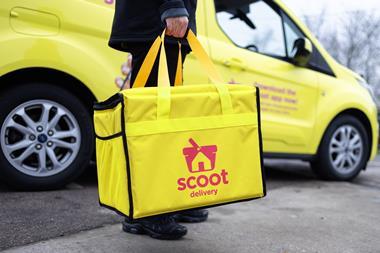
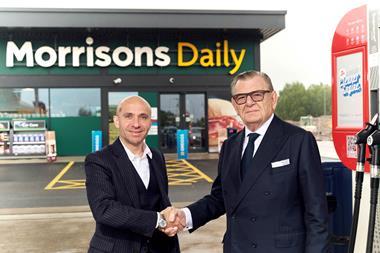
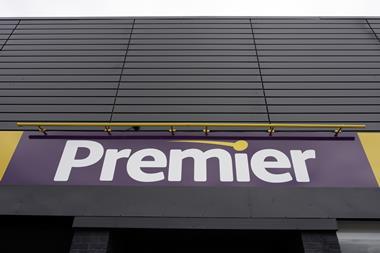
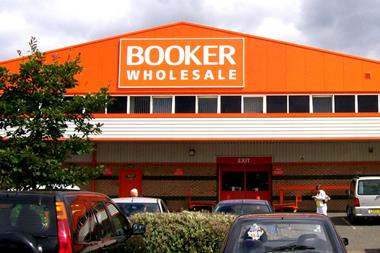
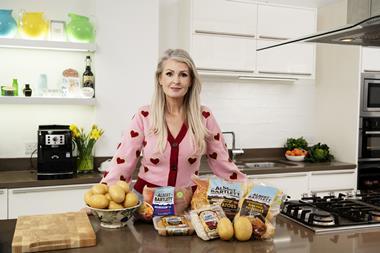





No comments yet